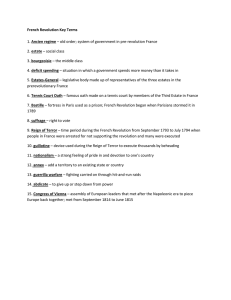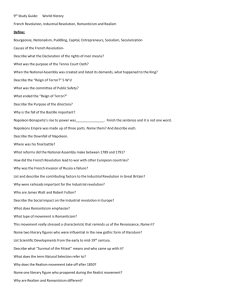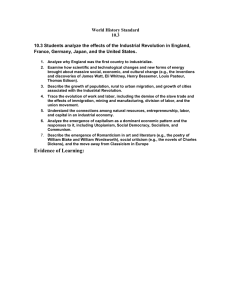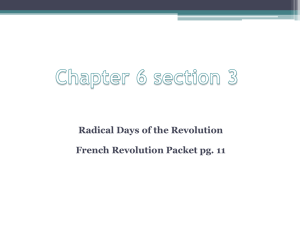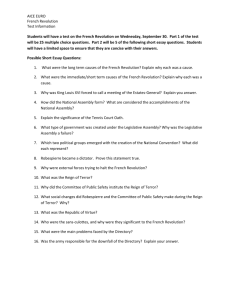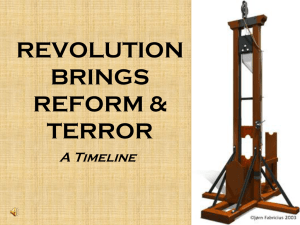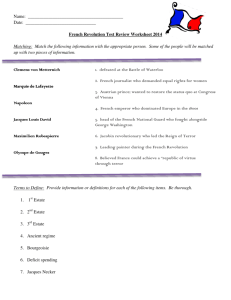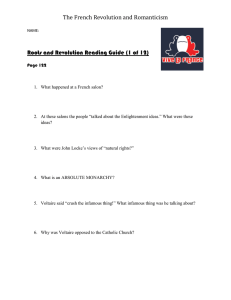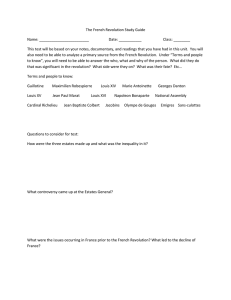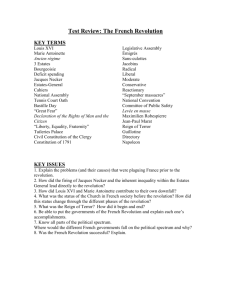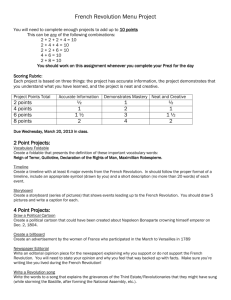Unit 4 * Rebels and Dreamers
advertisement
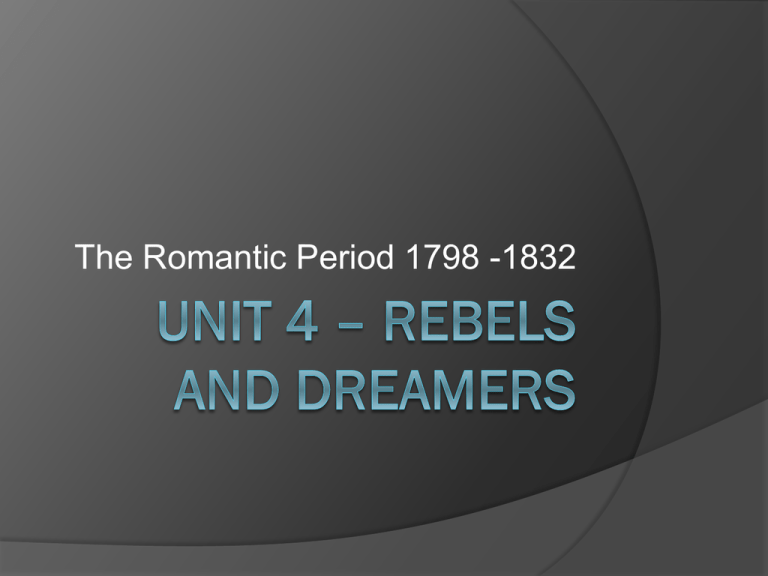
The Romantic Period 1798 -1832 Define the following Names and Terms to Know (page 651) French Revolution Bastille Reign of Terror Industrial Revolution Tories Whigs Romanticism Jean-Jacques Rousseau Look on the Timeline on page 653… Name two technological improvements in this period. What nation’s affairs dominated the European scene prior to 1816? Name three events that suggest that Britain suffered from popular unrest in the years after 1816. Historical Background The ____________ Period, nearly all the attitudes and tendencies of eighteenth century classicism and rationalism were defined or changed dramatically. The ____________ Revolution – a mob stormed Bastille, a Paris prison for political prisoners. France became a _________________ monarchy. The Reign of Terror Revolutionaries tried and convicted __________________ on a charge of treason and sent him to the _______________. Les Miserables. Those British who originally supported revolution now turned against it. The ____________ government lead by William Pitt, outlawed all talk of parliamentary reform outside the halls, banned public meetings, and suspended certain basic rights. Industrial Revolution Overcrowded factory towns Unpleasant and unsafe working conditions Long working hours for low pay People began to protest A new generation of _____________ emerged in the 1820s and reforms took place. The _________ Bill of 1832 brought sweeping changes to British political life. Literature of the Period New interest in the trials and dreams of the _____________ people. Deep attachment to nature and a pure, simple past. Swiss born writer _________________ – “Man is born free and everywhere he is in chains.” Goethe – works filled with myth, adventure, and passion Romanticism Affected the other arts as well. Wordsworth wrote ________________. Ordinary things should be presented in an ____________ way. ____________ not a force to be tamed and analyzed but a wild, free source of inspiration. The younger “____________ generation” rebelled more strongly against the conservatism. Keats - Odes British Prose ____________ was the dominant literary form but prose works also appeared. Mary Shelley - __________________ Jane Austen - __________________
